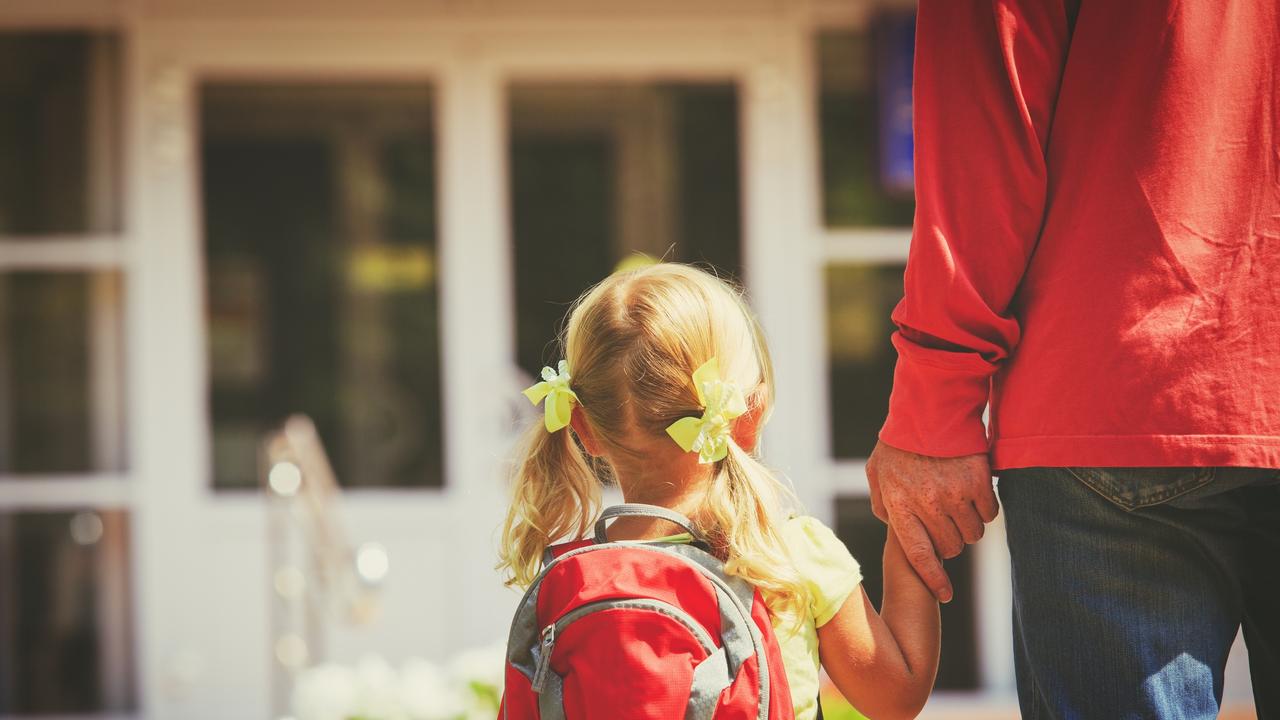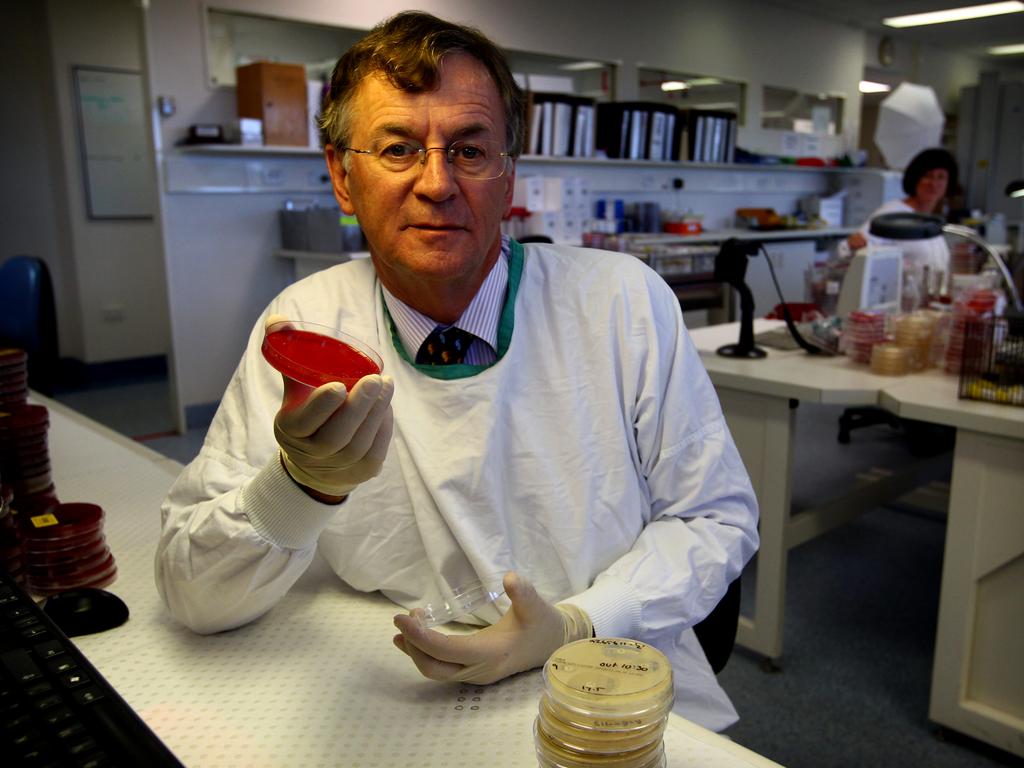Coronavirus Australia: Experts make case for keeping schools open
Pollies keep telling us Australia’s virus restrictions have been informed by medical experts. But there’s one area where that’s just not true.
Teachers face a greater risk of catching the COVID-19 from the supermarket than schools according to an infectious disease expert, who has urged the states to reopen the nation’s classrooms.
It’s the one debate where Australia’s politicians are not listening to the health experts: the decision to shut down schools across the country and move to distance learning over coronavirus fears.
The official advice from Australia’s chief medical officer Brendan Murphy has not changed, with the national cabinet reassured that schools are safe to remain open.
But to date, NSW, Victoria, Queensland and the ACT have disregarded that advice and will move to distance learning in term two, remaining open only for essential workers. Only the Northern Territory plans to keep schools open in term two.
RELATED: All the latest on coronavirus

Australian National University infectious disease physician Peter Collignon told news.com.au that was a mistake and teachers had more to fear from going to the supermarket.
“Look, it’s not a no-risk situation; it’s just the risk is very low,’’ he said.
“You’ve got more chance, if you’re a 50- or 60-year-old, picking up COVID in a supermarket than as a teacher in school.”
But he warned allowing older teachers to work from home would be an important safety measure.
“I believe we should send children back to school, with some conditions,’’ he said.
“We need to protect those most at risk. And we know who that is. If you’re over 70, don’t go to school. If you’re a cleaner or a headmaster you shouldn’t be there.
“If you’re between 50 and 70 and you’ve got high blood pressure, heart disease or lung disease, any of those features.”
RELATED: Schools where students and teachers have been forced into quarantine

He suggested those who are at higher risk could organise online learning programs and supervise younger teachers.
Early in the debate, some parents raised fears that schools would be “Petri dishes” for COVID-19 but not all experts agree.
“My answer to that? That’s influenza,’’ Professor Collignon said.
“But for COVID-19? The petri dish is cruise ships for adults, it’s not children. Once you’re under the age of 15, the numbers are minuscule.
“What we’ve done is said, ‘This is like influenza we will treat it the same.’ It is not. It is patently different. Yes, some children will get it but they probably won’t be big factors in the spread.
“I would say when we’ve got evidence of little transmission in the community, for example, Canberra, which probably has none as far we can tell, this is the time to reopen schools and make it as safe as possible.”
Critics of the proposal for Australian children to return to school have raised the example of Singapore, which did not close schools but now has taken that step after a second outbreak.
“But the reason Singapore has now done that is they didn’t go as far as us in March. They left their museums open, their restaurants open and their bars open,’’ Professor Collignon said.
“Most of the spread in Singapore is big dormitories of foreign workers where you have 10 people in a room.
“The other example to look at is (South) Korea, which is the most similar to us. They have kept their schools open. What I worry about it is if we don’t open schools in term two we are really saying they don’t open until October.
“There was one in a school in NZ that was in a college. That was because a teacher was sick in a school for five days. So, while there have been outbreaks in schools it’s predominantly adults infecting children.”
The decision of the states to close schools appears to be largely driven by fear.
But Victorian Premier Dan Andrews said today he had worked to deliver parents as much certainty as possible.
“We have sought to put in place a commonsense solution for term two. If you can stay at home and learn from home you need to do that. That won’t be every student but we think that will be a clear majority of students,’’ he said.
“Will that be in place for the rest of the year? No, I don’t think so. Will it change? Possibly. It will depend on where things are at in the weeks and months to come. We are very conscious of trying to provide as much certainty as possible.”
Monash University’s Professor Allen Cheng told news.com.au there were outbreaks at childcare centres and schools but the virus was being spread by adults, not children.
“Current investigations are proceeding, but we think that most of these relate to transmissions between adults, that is between teachers, or between adults dropping off children,’’ he said.
“While there have been a few cases in children, they do not appear to have spread infection and have had mild disease.”
Professor Cheng said it was difficult to know what impact school closures had on Australia’s success in flattening the curve.
“Even where the policy has been that schools have remained open, absenteeism rates have been high, and independent schools have had their own policies,’’ he said.
However, Professor Cheng said he believed it was safe for school to reopen.
“I agree that it is difficult for teachers, who hopefully aren’t going to supermarkets four days a week,’’ he said.
“The main advice I’d give them is that separating from other adults is probably the most important measure they can take.”
As a grandfather to 13 children, Professor Collignon said he was acutely aware of the anxieties of parents and teachers.
“Perversely, three weeks ago a lot of my views were unpopular with a lot of my family,’’ he said.
However, after two weeks of homeschooling, that had changed.
“My view is the general public is saying: ‘This is unsustainable. How can parents be teachers for six months?’ They can’t.
“People who are going to be the worst hit are people who are disadvantaged.”
After homeschooling his own children, Professor Cheng said he also had a message for teachers.
“On a personal note, I’d add that that having had my children at home for the last few weeks on Easter holidays in Victoria, I appreciate their teachers even more than ever,’’ he said.



